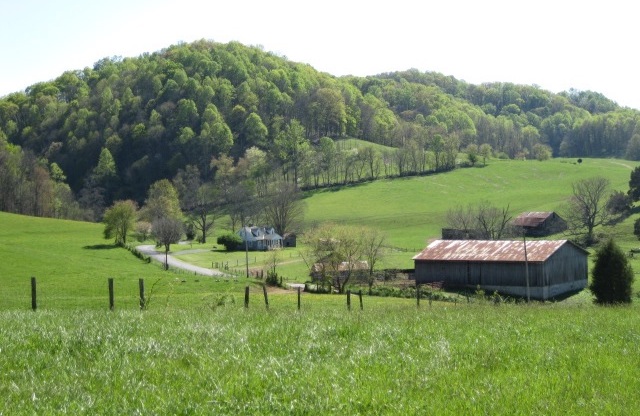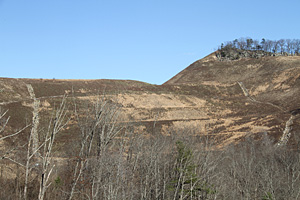Posts Tagged ‘Coal’
Climate in the Classroom
Scientists and science educators overwhelmingly agree that climate change is real and that part of science education is informing students about that reality. Appalachian educators are up to the challenge.
Read MoreODEC Puts Coal Plant on Ice
Wise Energy for Virginia For Immediate Release – August 9, 2012 ODEC Puts Plans for Coal Plant On Ice Clean energy groups rejoice but vow to stay vigilant ——————————————————————- Contact: Mike McCoy, Appalachian Voices (434) 293-6373 Beth Kemler, Chesapeake Climate Action Network (804) 335-0915 Glen Besa, Sierra Club Virginia Chapter (804) 387-6001 Cale Jaffe, Southern…
Read MoreBuried Blackwater: Revealing Coal’s Dirty Secret
By Brian Sewell No one knows exactly when the industry began injecting coal slurry, the toxic, semi-solid waste that remains after mined coal is washed, into networks of abandoned mine shafts throughout Appalachia. But it was sometime after a disaster on a cold morning in 1972, when 132 million gallons of blackwater erupted from a…
Read MoreCoal Generated Electricity Drops To All-Time Low in First Quarter
By Jessica Kennedy Data released in early May show that coal’s current share of U.S. electricity generation is at an all-time low. According to the U.S. Energy Information Administration’s Short-Term Energy Outlook report, coal made up only 36 percent of the country’s electricity in the first quarter of 2012, a drop of more than eight…
Read MorePlundering Private Property Rights
By Paige Campbell Half a dozen generations ago, when a coal-mining boom first enticed southwest Virginians to sell the rights to minerals beneath their land, the deal they were making concerned the coal itself. At least, that’s how Virginia’s courts have defined mineral ownership through most of the state’s mining history. But on April 9,…
Read MoreThe Dirty Money Dozen
According to both the Center for Responsive Politics and Oil Change International, contributions from oil, gas and other energy industries skyrocketed in the past five years, with the coal industry alone contributing more than $8 million in 2009-2010 — more than twice what the industry had contributed in any previous election cycle. And during 2011,…
Read MoreState Legislature Kills Mountaintop Removal Ban Through Delays
By Molly Moore The Scenic Vistas Protection Act, a bill to end mountaintop removal coal mining in Tennessee, was killed by a state House subcommittee after the bill was heard by the state’s Senate this March. The Tennessee hearing marked the first time that a bill to ban mountaintop removal was heard by a full…
Read MoreThe Dirtiest Congress Money Could Buy
By Matt Wasson According to a report released at the end of 2011, the 112th Congress had achieved, in just its first year, the dubious distinction of running the most anti-environmental legislative session in history. The report, conducted by Representatives Henry Waxman, Edward Markey and Howard Berman, showed that, in 2011, the House voted 191…
Read MoreThe Unhealthy Culture of Coal
The latest in a round of studies on health and well-being in the coal-bearing regions of Appalachia was released in mid-February, with the puzzling conclusion that, while coal mining may not directly contribute to health problems in Appalachia, it still plays a significant role in the health problems in Appalachia. Borak’s study claims that the…
Read MoreReclaiming Appalachia: Can Legislation and Enforcement Restore Mountains?
By Molly Moore Kathy Selvage has lived in Stephens, Va., her entire life. From her front porch, she can almost see the field where her childhood home once sat. Instead of the hardwood forest that surrounded her home, graded hills lean against each other like a lumpy bag of onions beneath a blanket of savannah…
Read More



